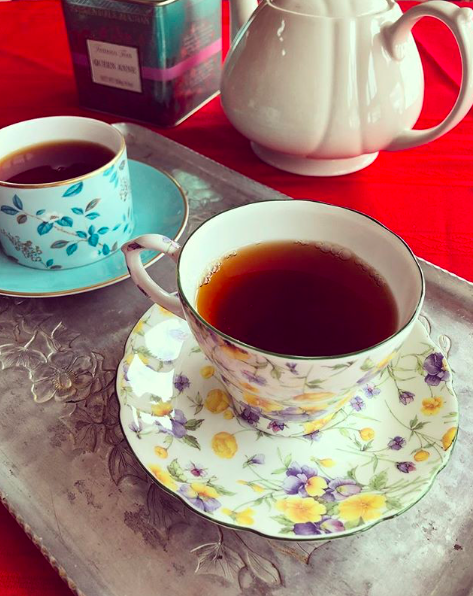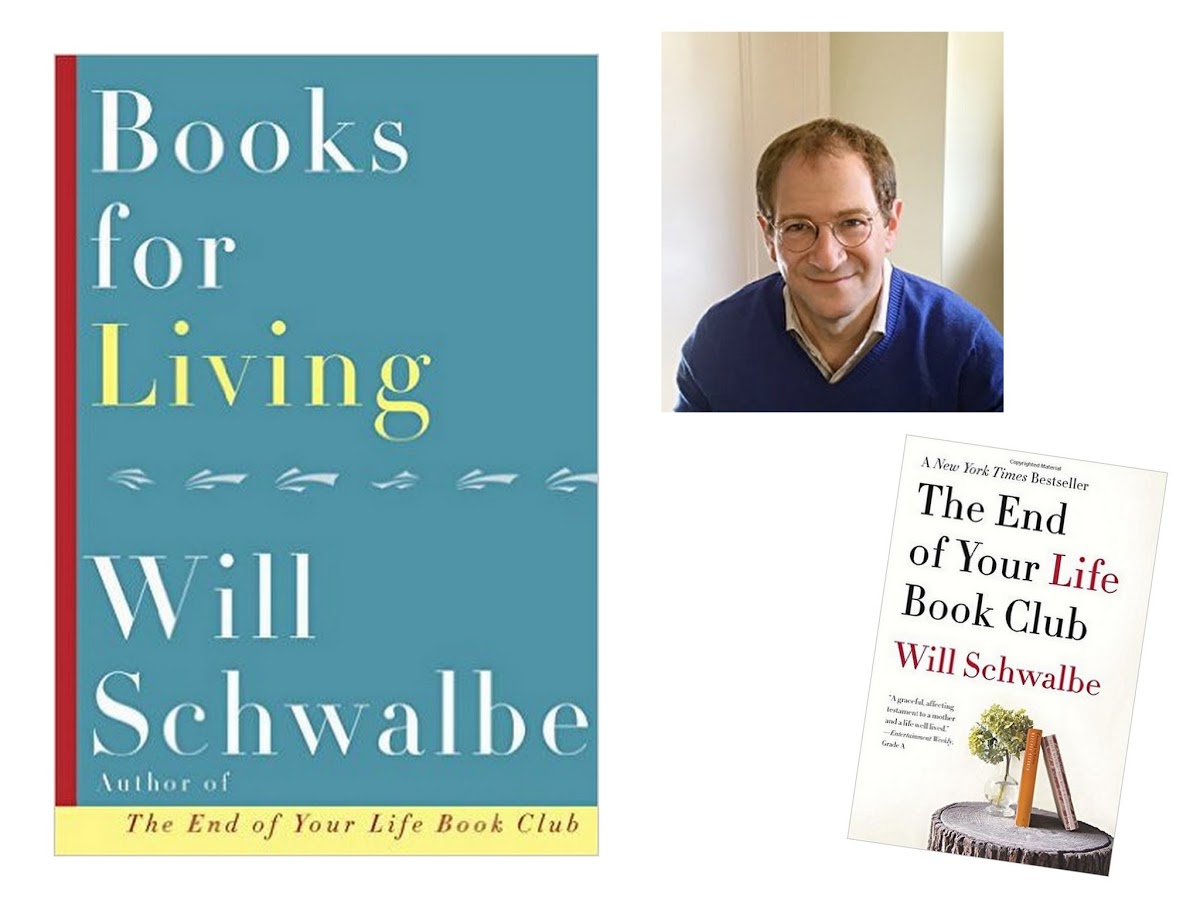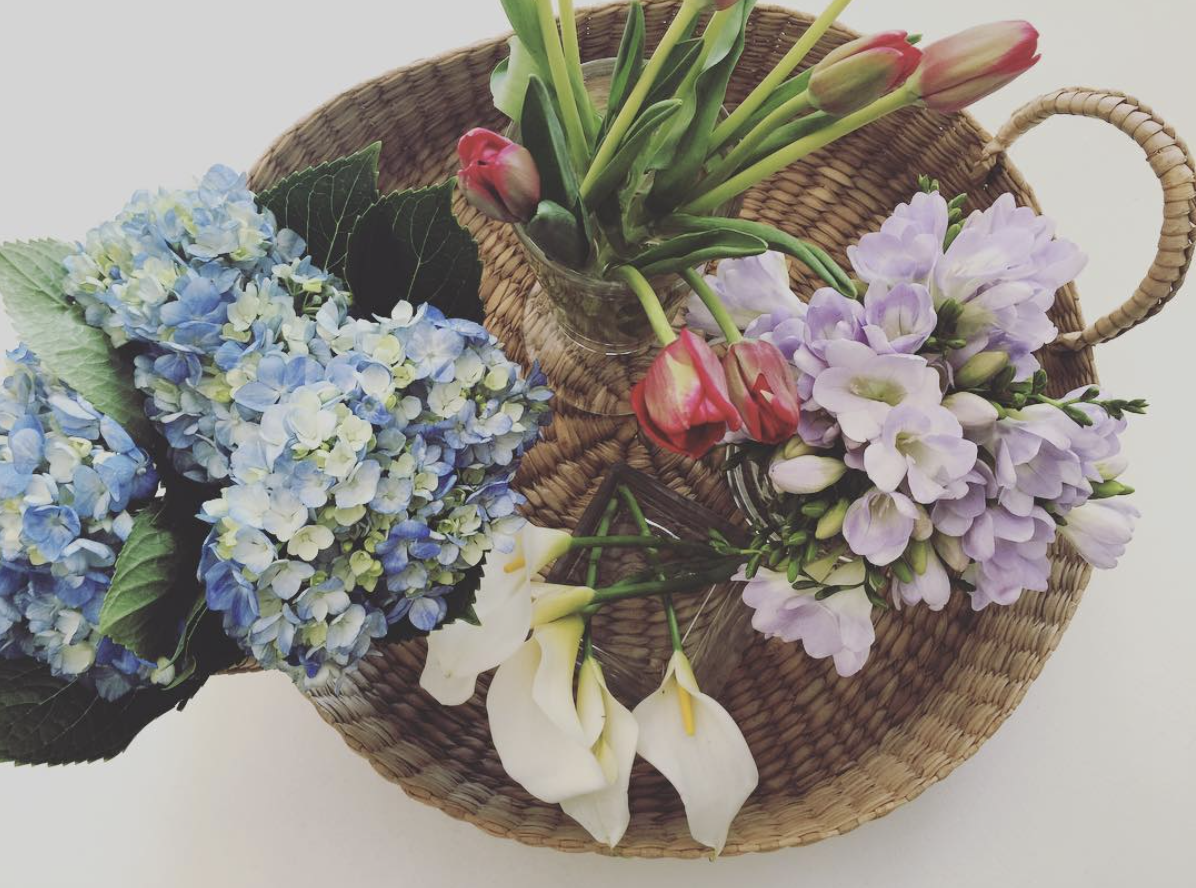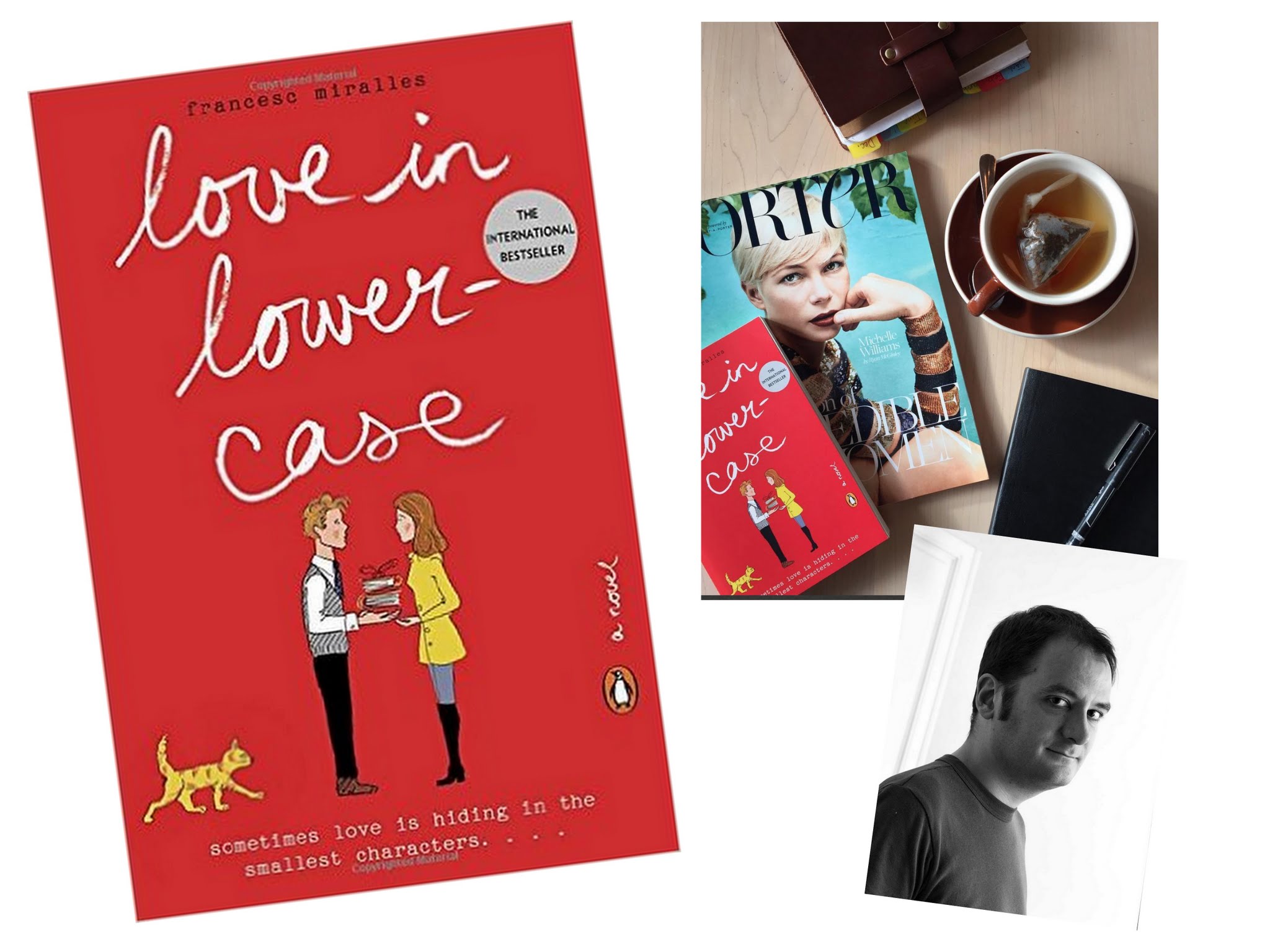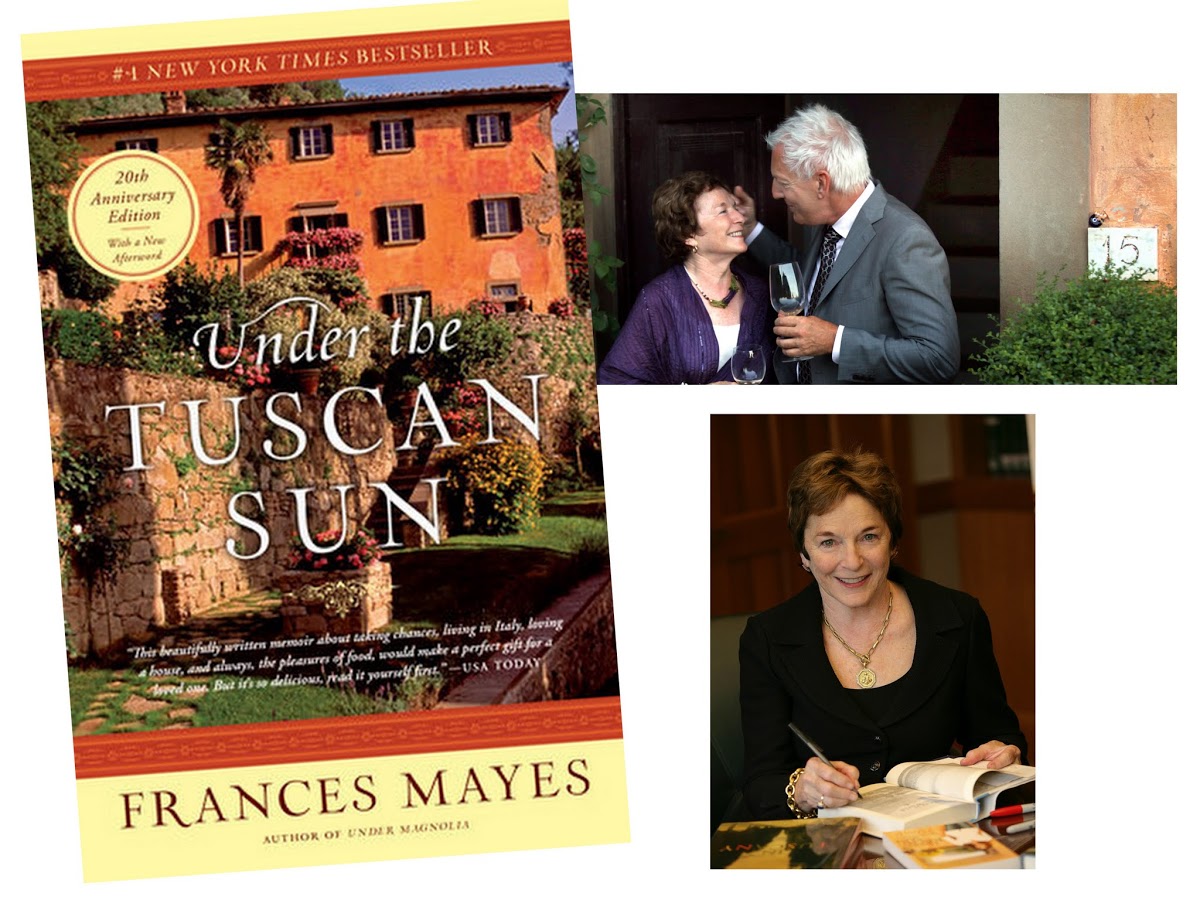Tue, 27 December 2016
~The Simple Sophisticate, episode #136~Subscribe to The Simple Sophisticate: iTunes | Stitcher | iHeartRadio
"It's never too late to learn anything for which you have a potential . . . and the limitless potential of love within each person [is] eager to be recognized, waiting to be developed, yearning to grow . . . If you want to learn to love, then you must start the process of finding out what it is, what qualities make up a loving person and how these are developed. Each person has the potential for love. But potential is never realized without work. This does not mean pain. Love, especially, is learned best in wonder, in joy, in peace, in living." —Leo Buscaglia, in Love: What Life is All About Nurture or nature. Acquired or known. A natural or skilled. There are some capabilities we each have that come more naturally to us: the ability to sing like a songbird or swim like a fish. This is not to say that practice and expert coaching won't help, but in each of these instances, there is an innate ability that advances the individuals that apply themselves to such great lengths others may not reach. On the flip-side, there are skills that anyone can learn if they choose to, and here is the good news. One of these skills is how to love. We are not born knowing how to love well. We learn by observing those who raise us, observing the world we are born into and by what we read, view and absorb. The catch is not all of us are watching how to love well. Some of us will have a distorted view, some of us will be limited by what we see while others will observe healthy, kind, thoughtful ways of loving. While there are many wonderful ways to express love, there are essential components, and that is what we'll be discussing today. And if as an adult you have come to discover the models you observed were not healthy, you can absolutely change and become a student again learning how to love well, and thereby enriching your life moving forward. Life, a well-lived and savored life, is a life asking of each of us to acquire skills to be successful. As I mentioned yesterday in the first post of 2017, often those of us who make mistakes along the way as we travel through life are not trying to make mistakes or incapable of improving. Instead, we are doing what we were taught, what we know. We are less skilled. But we can absolutely improve. Take a look at 26 ways you can learn to love well: ~A more detailed discussion is shared on today's episode of the podcast, so be sure to download and take a listen for further explanation on each point. 1.Experiment with your own life"Change and growth take place when a person has risked himself and dares to become involved with experimenting with his own life." —Herbert Otto 2. Forever be a studentOne cannot give what they do not possess. To give love you must possess love. One cannot know what they do not study. To study love you must live in love. One cannot appreciate what they do not recognize. To recognize love you must be receptive to love. One cannot have doubt about that which they wish to trust. To trust love you must be convinced of love. One cannot admit what they do not yield to. To yield to love you must be vulnerable to love. One cannot live what they do not dedicate themselves to. To dedicate yourself to love you must be forever growing in love. —Leo F. Bascaglia 3. Cultivate your own contentment"When we feed and support our own happiness, we are nourishing our ability to love." 4. Find, unearth, your true self"Be able to love, heal and accept yourself, so you can then offer these gifts to others." Many times we seek out love in order to alleviate our own suffering, and the suffering is due to a conscious or unconscious refusal to take the time to get to know ourselves. 5. Be mindfulComing to understand how to create moments of joy for yourself enables you to give that joy, thus the love, to others. 6. Be kind7. Practice loveOne must live love. Take action. 8. Stop objectifying loveLove is not a thing to possess. You already have it, love, within you, now you just need to tap into it, foster it, practice it and then live in love. 9. Build within yourself trust, self-respect and confidence10. Become a good listenerLearn your partner's "love language". "To love without knowing how to love wounds the person we love. To know how to love someone, we have to understand them" and that begins with listening well. —Thich Nhat Hanh 11. Stop labelingStop making assumptions, stop jumping to conclusions. Let go of stereotypes about cultures, groups, etc. 12. Let go of being perfect, and just be human"A base for love and the potential for growth in love is also present in each man. Love is then a process of 'building upon' what is already there. Love is never complete in any person. There is always room for growth." "If you know, accept and appreciate yourself and your uniqueness, you will permit others to do so. If you value and appreciate the discovery of yourself, you will encourage others to engage in self-discovery." 13. Be vulnerable"Man may know that only by being vulnerable can he truly offer and accept love." —Leo Buscaglia 14. Open your palm"And then, the lover, to learn and to change and to become, also needs freedom. Thoreau said a wonderful thing: 'Birds never sing in caves.' And neither do people. You've got to be free in order to learn." —Leo Buscaglia 15. Let go of expectations, but have clear boundaries16. Cease placing conditions"Others can and will only give what they are able, not what you desire they give. When you cease placing conditions on your love you have taken a giant step toward learning to love." 17. Be patient"The human seeking love will find that love is patient. The lover knows that each person can enhance [their] knowledge of love and bring them closer to themselves . . . each person will grow at their own rate, in their own manner, at their own time, by way of their unique self. Therefore, it's helpless to berate, judge, predict, demand or assume. Love must be patient. Love waits. This doesn't mean that love sits passively forever, if necessary, for the person to grow. Love is active, not passive. It is continually engaged in the process of opening new doors and windows so that fresh ideas and questions can be admitted." 18. Learn how to communicate well19. Become an expert of understanding your own emotions20. Meet your emotional as well as your physical needs"A human's basic psychological needs are these. She requires to be seen, recognized, appreciated, heard, fondled, sexually satisfied. She must be allowed the freedom to choose her own way, to grow at her own rate and to make her own mistakes, to learn. She needs to accept himself and other human beings and be accepted by them. She desires to e an 'I' as well as a 'we.' She strives to grow into the unique individual that she is." 21. Be present"Love lives in the moment." 22. Believe the world is good because it is23. Help others reach their full potential"As soon as the love relationship does not lead me to me, As soon as I, in a love relationship, do not lead the other person to themselves, this love, even if it seems to be the most secure and ecstatic attachment I have ever experienced, it is not true love." 24. Create an everyday life to savor"Another responsibility of love is to create joy. Joy is always an integral part of loving. There is joy in every act of live, no matter how menial or repetitive . . . you can make the day a chore; dull, nerve-wracking, frustrating, a waste of time. Or the same day can be taken on with energy, enthusiasm and a determination to make it one of the best days of your life, for yourself and those about you." 25. Stand in your strength"It is the weak who are cruel. Gentleness can only be expected from the strong." —Leo Rosten 26. Become love"For to be a lover will require that you continually have the subtlety of the very wise, the flexibility of the child, the sensitivity of the artist, the understanding of the philosopher, the acceptance of the saint, the tolerance of the dedicated, the knowledge of the scholar, and the fortitude of the certain." Shel Silverstein's The Missing Piece Meets the Big O, the allegory of true love" https://youtu.be/MCmZ2jrQooE ~Books mentioned in the episode: ~Love: What Life Is All About by Leo F. Buscaglia ~How to Love by Thich Nhat Hanh Petit Plaisir~Books for Living by Will Schwalbe
|
Mon, 19 December 2016
|
Mon, 12 December 2016
 ~The Simple Sophisticate, episode #134
"A startling paradox that bespeaks how we, as a culture, cripple ourselves in the journey to love — if one wanted to learn about cars, one would 'without question study about automobiles'; if one wanted to become a gourmet cook, one would 'certainly study the art of cooking, perhaps even attend a cooking class.' But when it comes to love, Buscaglia points out, we expect the skill of it will magically bestow itself upon us. 'No mechanic or cook,' he writes, 'would ever believe that by ‘willing’ the knowledge in his field, he’d ever become an expert in it.'” -on Leo Buscaglia's Why Love is a Learned LanguageSuccessful business mogul Warren Buffett has famously advised to write down 25 things we want to do in life and then promptly focus solely on the top five and forget about the other 20. Why? The time we have to dedicate to anything is finite, therefore if we want to achieve something of quality: a skill, a reputation, an invention, a business, anything at all, we have to give it our full attention. And if we have a laundry list of things we want to achieve, we are often distracted by what we are not able to do and not fully giving ourselves to what we should be focused on. Along the same argument, in Malcolm Gladwell's best-selling book Outliers, he shares research that finds that it takes 10,000 hours of deliberate practice to develop the level of proficiency of most professionals (Gladwell further clarifies that this holds true primarily in cognitively demanding fields, but assists tremendously in others such as sports). Taking into consideration these two components, I couldn't help but ascertain that the combination of focus and practice, deliberate practice, while helpful in our professional pursuits and pursuit of realizing our dreams would be quite beneficial within our everyday lives as well. For example, perhaps we too should deliberately practice as well as pay close attention to learning how to cultivate stronger relationships, a deeper, more fulfilling everyday experience and overall contentment as we proceed through life. Two books (here and here) I have read in the past six months shared a common message about one's success in love. Not to equate love as a competition, but rather to be successful in making healthy, deep, sincere connections with others, choosing to learn how to love is crucial. Considering that expectations, mores and gender roles have been in constant flux for centuries, we don't enter the world knowing how to love and love well. It is a learned behavior. As Dr. Leo Buscaglia reveals in Love: What Life is All About, "One cannot give what he does not possess. To give love you must possess love." And in order to possess love and then know how to give it, we must become a student of love. Imagine for a moment as far back as you are able of what love looked like to you. Maybe it was your parents, maybe it was revealed in the fairy tales read to you, maybe it was the television shows or your older sibling talking about their adventures in relationships. While all of these may have contained aspects of love, some far more than others, love is an action that we only learn how to exercise in our own lives if we practice it. And we can only become successful if we practice it properly. Much like watching a cook demonstrate how to slice an onion, we don't become proficient by observing, we become proficient by doing. We cannot buy love, we cannot hire love. No. Instead, we have to become a student of love, and live it every day. Which leads me to the most magnificent and hopeful news I want to share with you today. Each one of us can cultivate the love we want in our lives. Each one of us has the potential, and it all begins with us and then what we begin to put out into the world. "It’s simply this — the limitless potential of love within each person eager to be recognized, waiting to be developed, learning to grow." —Leo Buscaglia With that understanding, let the journey begin. Or should I say let the course on love begin. I, perhaps like you, have always loved the idea of love. But now I have to ask myself, was I errantly and ignorantly getting in my own way? As the new year begins and the first episode of the podcast goes live on Monday January 2, tune and discover what I have found out and am looking forward to sharing.
~SIMILAR POSTS YOU MIGHT ENJOY: ~Why Not . . . Stop the Pursuit? ~The Most Important Ingredient for a Healthy Romance
Petit Plaisir:—Ma Vie à Paris (English & French versions) - deliverable to EU countries—created by French Home Goods company Astier de Villatte, owners Ivan Pericoli and Benoît Astier de Villatte —Pick up a copy in Bend, Oregon, at Nicole Michelle Decor —Special order at your local bookstore. ~Learn more about the SAIG Linotype printing press machine here and the process of printing this one of a kind Parisian guide book here. 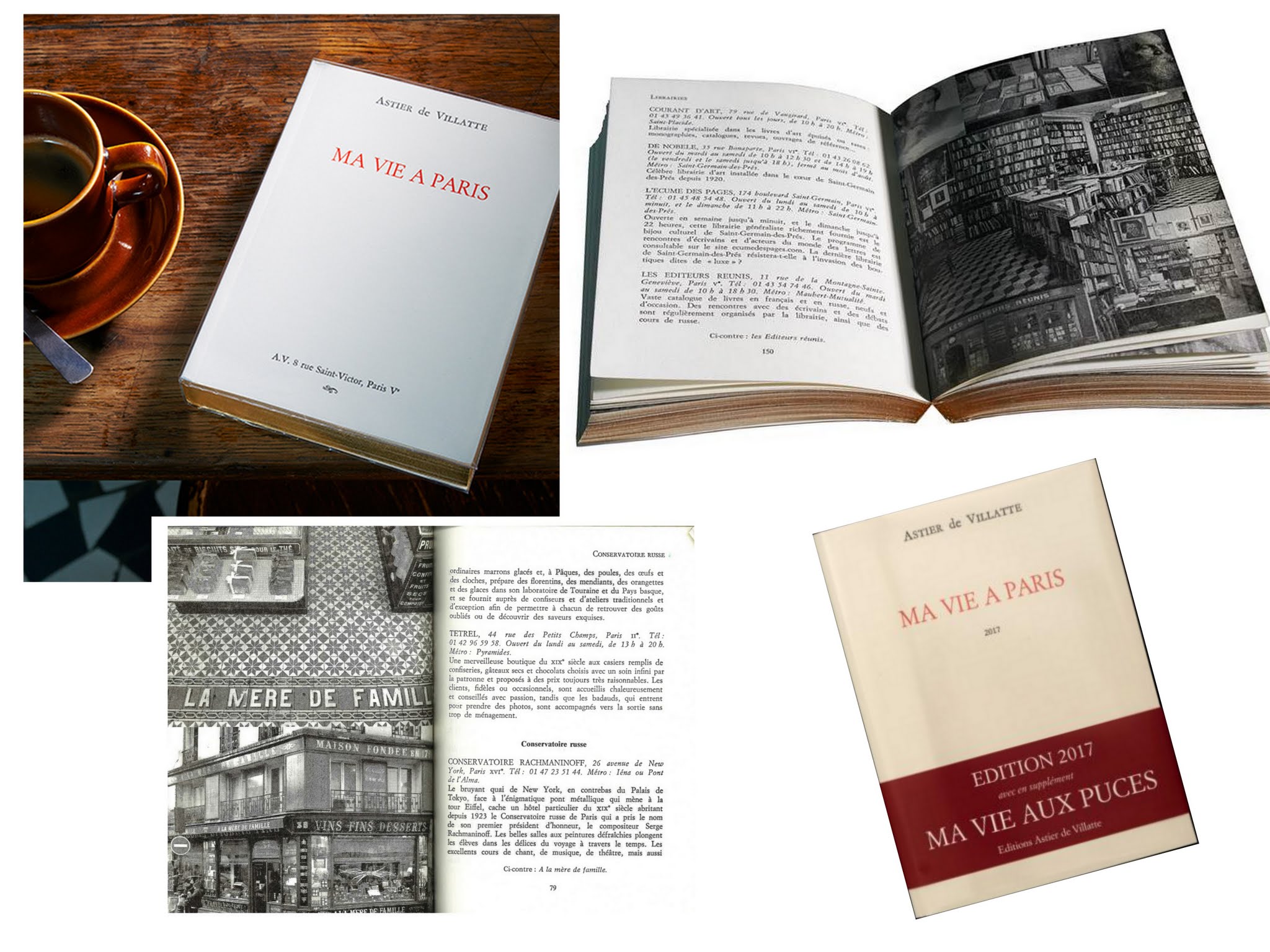 ~hand drawn maps and black and white photos on nearly every page~ |
Mon, 5 December 2016
~The Simple Sophisticate, episode #133Maybe you've had a few or many past failed relationships. Perhaps you are currently single or married or in a relationship at the moment, but maybe it just doesn't feel as though you know how to make it stronger, healthier, but there is some part of you that knows it is possible. Even if you aren't in a relationship, you understand that it is a healthy relationship you seek because at the moment, life is grand on your own and far better than being in a dysfunctional partnership. As you reflect on the past, remember this: You gave love, you were hopeful, you did your best with what you knew at the time. Let go. And forgive yourself. "Forgive yourself for not knowing what you didn't know before you learned it." As I look back on my own past that contains a handful of relationships, all of which were unique and different, and began and ended for different reasons, I know I am a different person now, I know that I have learned much more to be a far better partner, but also to be a far better, and more content individual whether I am in a relationship or not. I know now, but I didn't then because I didn't know either what I needed or where to find the knowledge I sought. I either had models that were dysfunctional and I didn't recognize it or I didn't have a deeper understanding of what I was modeling my life after. Most importantly, I was still growing and discovering myself, and thankfully, that journey has never ceased. Why am I thankful that the journey has continued? Because it has finally lead me to resources, valuable and worthwhile resources to understand what I was lacking when it came to being someone who was indeed ready to be in a healthy relationship. And this is what I have discovered. 1. Explore what interests you In episode #131, the philosopher Bertrand Russell's approach to happiness was discussed in detail and at the top of the list of 38 ways to attain happiness was the idea of exploring what interests you. The key is sincerity of interest and the other component is to have more than just a few interests. For if one falls through or wanes, you have other interests which can fill the gaps and ease the loss in your daily routine of doing what you love and enjoy. To put all of our time and interest into one basket of interest is to put a tremendous amount of pressure on that focus in our lives. Often that focus is a relationship, and while tending to and investing in a relationship that brings us much joy is a worthwhile interest, it shouldn't be the only interest we have. Pursue your love of the French language, pursue your love of cooking, your itch to travel, working in the yard, caring for a pet, time in your art studio, anything that you are naturally drawn to and build a wealthy life of interests that fill your schedule without weighing you down. 2. Investigate and explore your barriers to healthy relationships “The good news is that every morning we have the choice; not to be controlled by circumstances nor our past but by purposely designing our day, hence our lives better. Not to react to life but to respond with love.” ― Bernard Kelvin Clive The work behind the scenes that nobody sees, the internal work, is the work that will reap awesome, lasting benefits enabling you to see and experience lasting growth from which you can continue to build on to build the strong and healthy relationships you want but perhaps didn't know how to attain because you kept getting in your own way unconsciously due to either buried fears, insecurities, a past history that played a negative thought track that prevented you from seeing the amazing possibilities you were presented with. Investing in ourselves by scheduling time with a counselor or an expert in the field in which we know we need to grow is an investment in a quality way of life that will not only equip you to attain true contentment but you will be demonstrating that to the world around you and providing an environment and a model of how to live well. 3. Learn how to communicate effectively Some of us as children were able to observe healthy and effective communication habits. The most powerful communication that is often hard to see modeled is when two individuals disagree. How do they express how they are feeling, feel respected without attacking and move forward? If we haven't seen this modeled in our own lives, it is up to each of us to learn, and thankfully, the information on this topic is abundant. Ultimately, in order to communicate well, we must know what we want to say and why we want to say it. And in order to understand the "why", which is actually a difficult truth to unearth, we must get to know ourselves. It sounds odd perhaps, but we need to understand why we are angry in particular moments; we need to understand why we are fearful; why we get defensive; why we get jealous, and look within ourselves to understand our unconscious reactions before we speak and do damage unnecessarily. On the flip-side, we must not cower into ourselves and become passive. There will never be a healthy relationship that involves a passive individual if the relationship wants to grow stronger. We must communicate without attacking, express how we feel, be able to objectively observe our emotions, and listen with intent to learn and understand more deeply. Click here for a more in-depth post on each of these and more tips to effective communication. 4. Cultivate a healthy, strong social life Our social worlds are often tied to our interests as well as our work, and as discussed in episode #36, while they take time to build, the gift is you feel free to be yourself and thus your social life becomes a place of enjoyment, pleasure, respite and an integral piece to your contented life. With a clear list of people to let go of (of which there on nine) and six people to welcome into your life, the episode reveals that it is who is in your life that will help alleviate your stress and you theirs as well as allowing them and you to be truly free to be yourself that will enhance all arenas of your life. 5. Actively pursue your dreams “The purpose of life is to live it, to taste experience to the utmost, to reach out eagerly and without fear for newer and richer experience.” ― Eleanor Roosevelt Let go of the have-tos and must-dos of the lives we see modeled around us whether by family members, the media or community and/or national institutions and instead dive into your dream. Perhaps your dream requires you to work on the weekends or each night after work a few hours. Maybe your dream prevents you from celebrating when Friday evening arrives, but enables you to come alive when you immerse yourself in the pursuit. Trust your dreams, not the fears that are thrown at you by the outside world that you are not doing what you should be doing. People are intrigued and appreciative of those who have the courage to tap into something and pursue it doggedly. Not everyone will understand, but those who respect it and admire it will be people with whom you will connect with. And you, in pursuing your dreams will find a contentment that at first will be hard to describe to anyone who is simply following a path that everyone else is one, but then you will learn it is the only way to be truly alive and authentically you. 6. Cultivate self-compassion When we look within ourselves for compassion, we give ourselves permission to be imperfect. We begin to recognize that we must first be kind to ourselves in order for others to know that is how we deserve to be treated. Yes, some will be kind anyway, as it is their way, and a very good way indeed, but for those who may attempt to push our boundaries, we recognize the attempt and can keep them out of our lives unable to do harm. Often we are the harshest critics in our lives, as discussed in episode #122, but the belief that doing so is the best path to success is false. In fact, it is quite detrimental. Rather, being self-compassionate reveals a higher emotional intelligence as we are able to have a broad perspective on our circumstances and move on rather than get bogged down in self-criticism. And when we are the cheerleaders of our own lives, when we are not the bully in our own heads, we look less to the outside world to build us up and are able to build healthier relationships as we can take care of our own emotional needs. 7. Become comfortable with validating yourself If we do not first validate ourselves, approve of the life and the decisions we make within our lives, we will be constantly running around seeking approval from others, dependent upon it, desperate for acceptance, and we will only be harming ourselves, never able to find true contentment. As shared in a post in 2011, “You can succeed if nobody else believes it, but you will never succeed if you don’t believe in yourself.” But why do many of us fall into the trap of first asking if we should do something and instead simply trusting what we know will fulfill us, what we know will bring pure joy, what we know will make us happy? We want to bond with others, we want love, we want to feel love. This is human. But what it does is bonds us with people who we may not want to bond with. Wouldn't you rather bond with someone who was fascinated with your decision after the fact? After you had made the big decision to pursue that dream which may have appeared ridiculous to some, but made complete sense to you? Wouldn't you want an authentic connection? Yes, it is scary to refrain from seeking validation from others, especially from our parents, peers and those we may have been (or currently are) in relationships with, but when we forget about the power of our own self-approval, we limit the quality of life we could be living. 8. Build a life you love living on your own “Find ecstasy in life; the mere sense of living is joy enough.” ― Emily Dickinson Cultivating a simply luxurious life centers around the premise of building something that is congruent with your authentic and most true self, letting go of building the life you think you should and upon incorporating the former rather than the latter approach, the quality way of living you seek will materialize. A funny thing happened over the weekend. As I mentioned in a previous This & That post, I have been contemplating picking out a significantly smaller tree for my house this holiday season. Well, I in fact did just that, and as I look around my smaller house (nearly 1000 sq feet smaller than what I had lived in previously) after having decorated the tree, having added a few decorations to the tabletops (I found mistletoe!) and having hung the stockings for the boys (my dogs - Norman and Oscar) and myself, I still had energy and more money than previous seasons in my checking account for holiday expenditures. When we begin to truly listen to what works for us, rather than gravitate toward what we've done, what has been done, what we've seen, what we know, we begin to curate a life that is in alignment with our values. We begin to curate a life that enables us to live and pursuit what we love and thus become enlivened from within. We are the gardeners of a rich and more fulfilling life, if only we will listen to ourselves. When it comes to relationships, we will undoubtedly be involved in many different types, all having the gift of teaching us something about ourselves and the world. But when it comes to lasting relationships, relationships that will endure, however, keeping in mind that nothing is infinite, we multiply the happiness quotient for not only ourselves no matter what we may be doing but also for those we love. ~SIMILAR POSTS FROM THE ARCHIVES YOU MIGHT ENJOY: ~The Myth Hindering an Amazing Love Life ~Make Your Own Life Rules: How & Why ~What Does a Simply Luxurious Life Look and Feel Like? ~A Powerful Couple: Boundaries & Vulnerability ~Romantic Love: What It Is & How to Maintain It Petit Plaisir:~Under the Tuscan Sun: 20th Anniversary Edition by Frances Mayes, (paperback copy) (e-book edition)~Visit Frances Mayes blog and website here. ~tour the house that was seen in the movie (which was remodeled in 2006) here. Frances Mayes house was not the set for the movie.
|
The Simple Sophisticate - Intelligent Living Paired with Signature Style

Categories
lifestylemoney
fashion
general
food
relationships
beauty
holidays
style
decor
etiquette
technology
dating
clothing
news
happiness
health
finances
self-help
feminism
french living
communication
inspiration
self-improvement
cooking
French-inspired
podcast
travel
entertaining
Archives
AprilMarch
February
January
December
November
October
September
August
July
June
May
April
March
February
January
December
November
October
September
August
July
June
May
April
March
February
January
December
November
October
September
August
June
May
April
March
February
January
December
November
October
September
August
July
June
May
April
March
February
January
December
November
October
September
August
July
June
May
March
February
January
December
November
October
September
August
July
June
May
April
March
February
January
December
November
October
September
August
July
June
May
April
March
February
January
December
November
October
September
August
July
June
May
April
March
February
January
December
November
October
September
August
July
June
May
April
March
February
January
December
November
October
September
August
| S | M | T | W | T | F | S |
|---|---|---|---|---|---|---|
| 1 | 2 | 3 | ||||
| 4 | 5 | 6 | 7 | 8 | 9 | 10 |
| 11 | 12 | 13 | 14 | 15 | 16 | 17 |
| 18 | 19 | 20 | 21 | 22 | 23 | 24 |
| 25 | 26 | 27 | 28 | 29 | 30 | 31 |
Syndication

